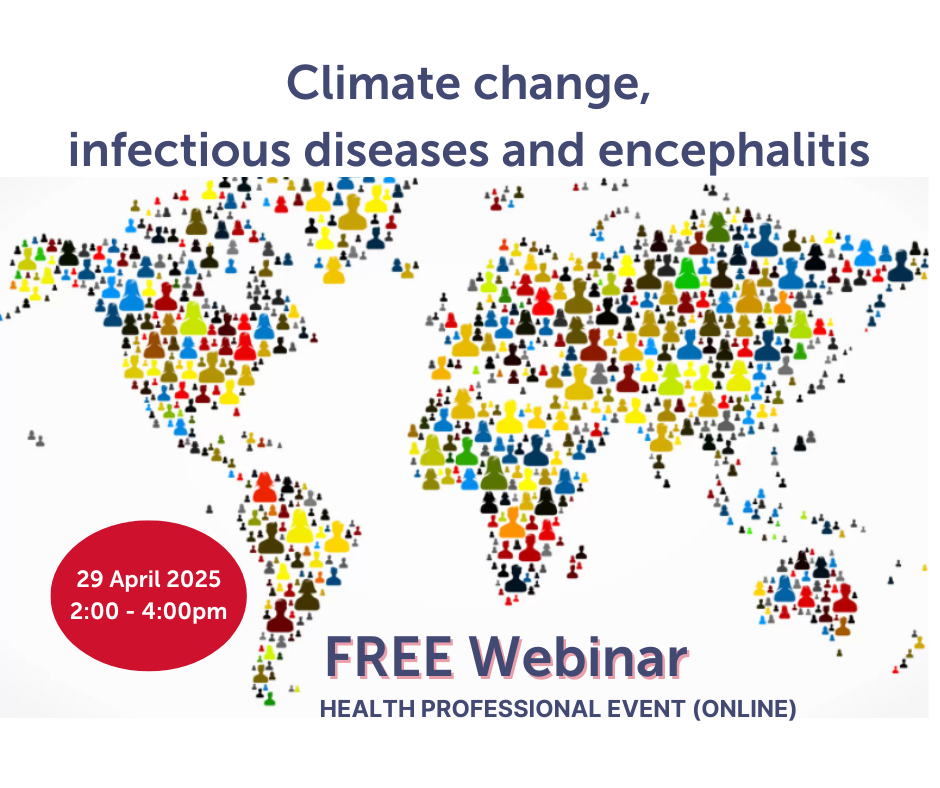Infectious diseases, encephalitis and climate change webinar
FREE Health professional event (online)
Registration is now OPEN!
If you are a health professional please join us on the 29 April 2025, at 2pm (BST) to find out more about the impact of climate change on infectious diseases and encephalitis. If you are not able to join ‘live’, please register and a link to the recordings will be sent to you after the event.
The webinar will be chaired by: Dr James Sejvar: Neuroepidemiologist, Department of Neurology, University of Pittsburgh and University of Pittsburgh Medical Center.

Climate Change and Encephalitis Webinar
In this episode of The Encephalitis Podcast, Dr Ava Easton is joined by Dr James Sejvar for a discussion around climate change, and how it’s affecting our risk for deadly infectious diseases, such as West Nile encephalitis or Japanese encephalitis.
Dr Sejvar is a Neuroepidemiologist at the University of Pittsburgh and, University of Pittsburgh Medical Center, USA. At the time of the podcast, he led the Neuroepidemiology Unit at CDC’s Divisions of High-Consequence Pathogens and Pathology where his work focused on epidemiology, pathogenesis, clinical features, and outcomes of infections of the nervous system work which took him all over the world. He investigated the West Nile virus in the United States, Ebola in Central Africa, Zika in South America, and of course, COVID-19. Dr Sejvar is also a member of the Encephalitis International Scientific Advisory Panel.


